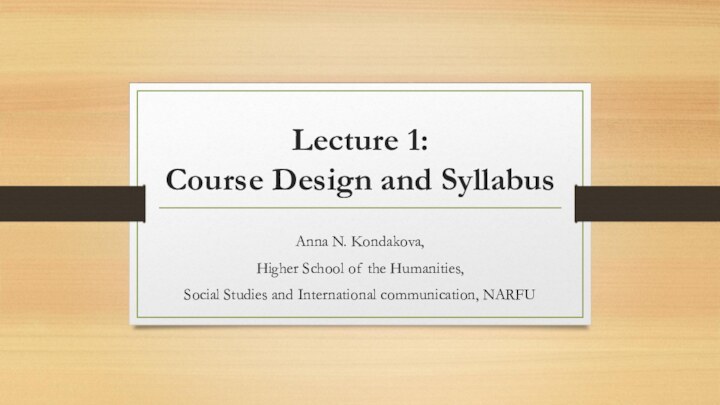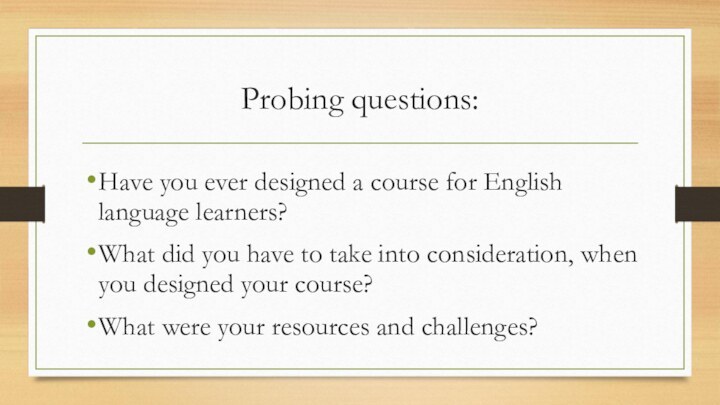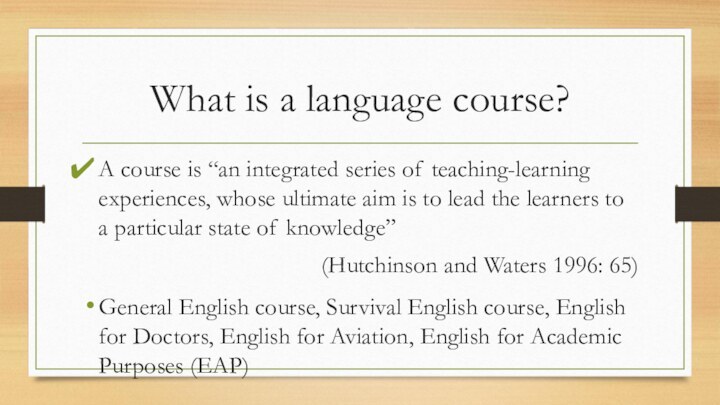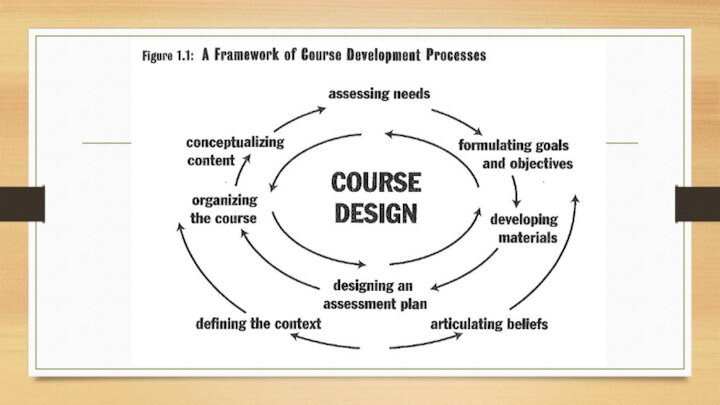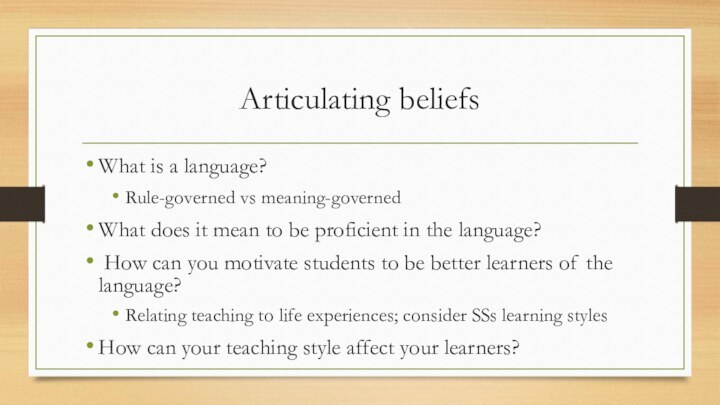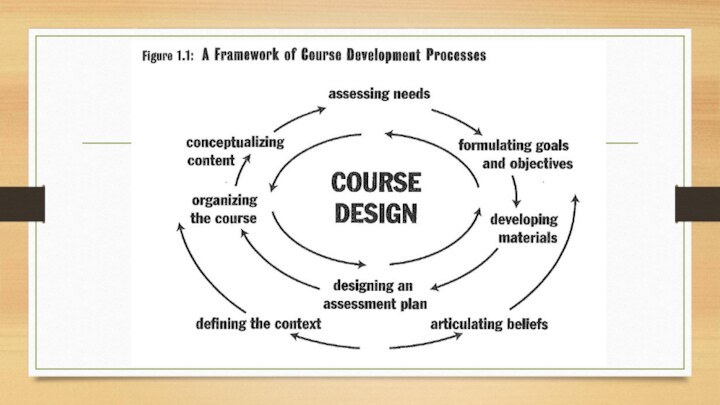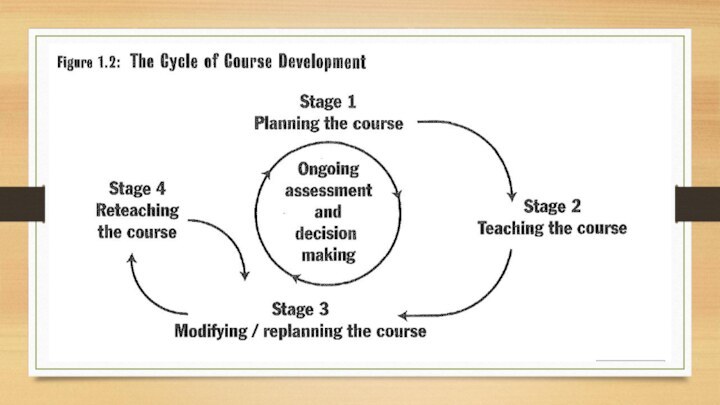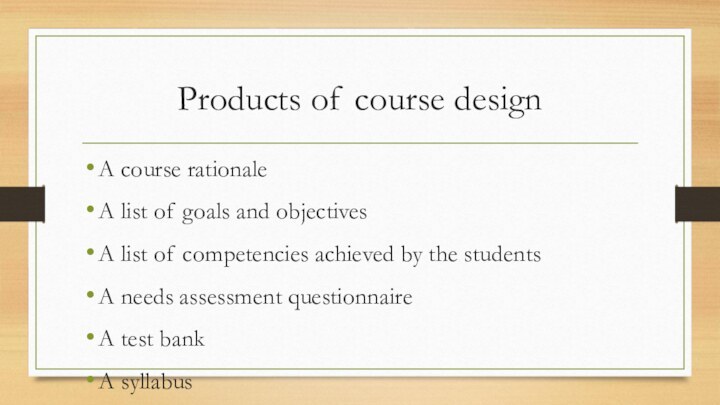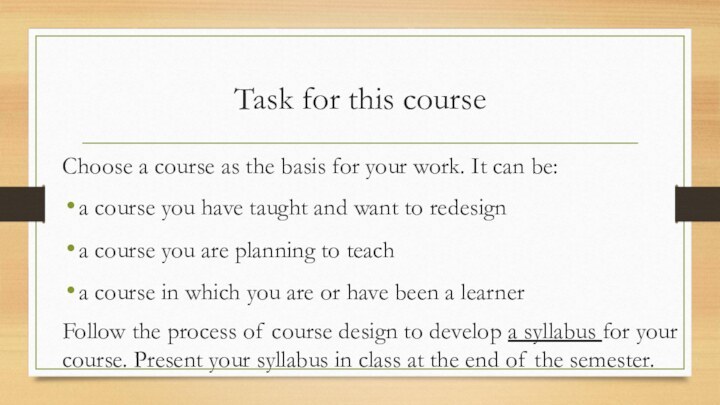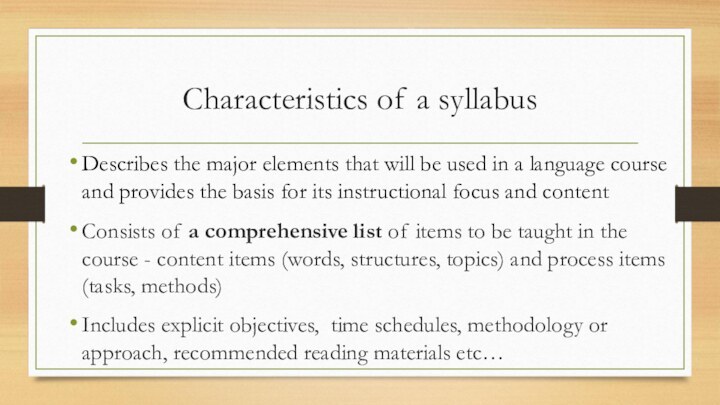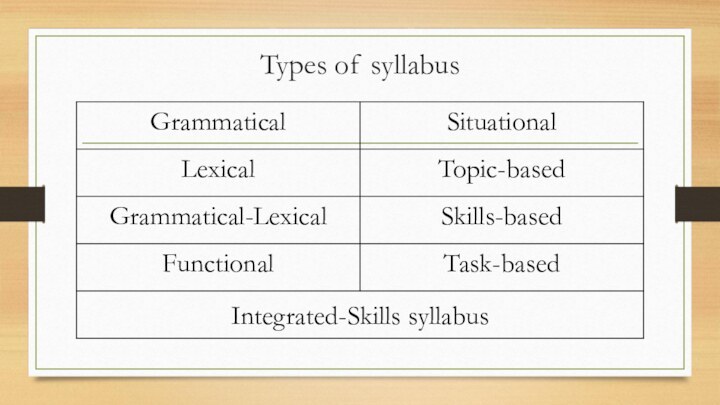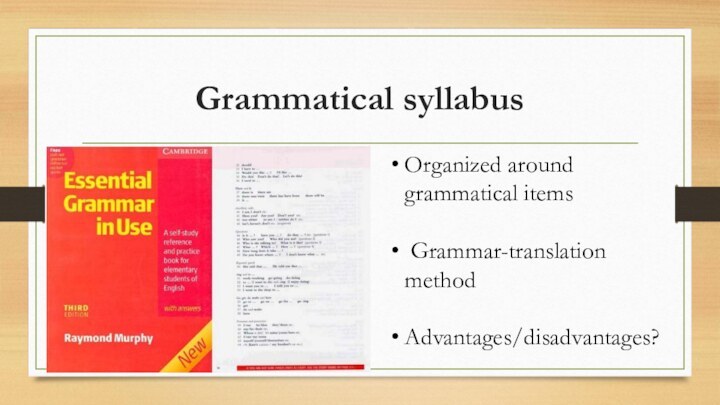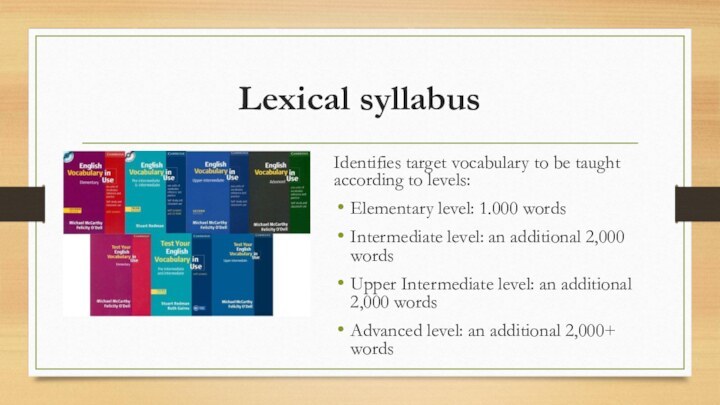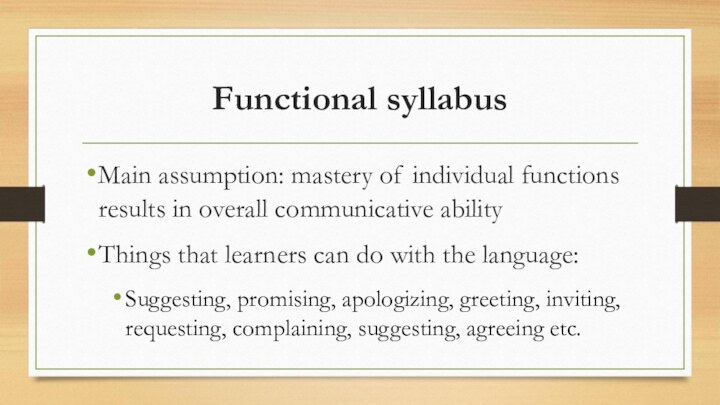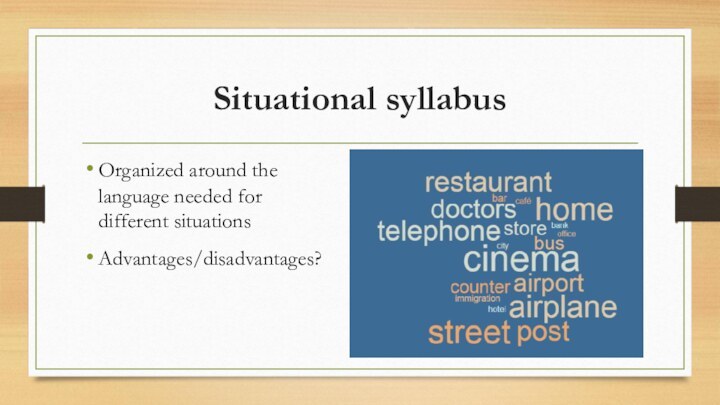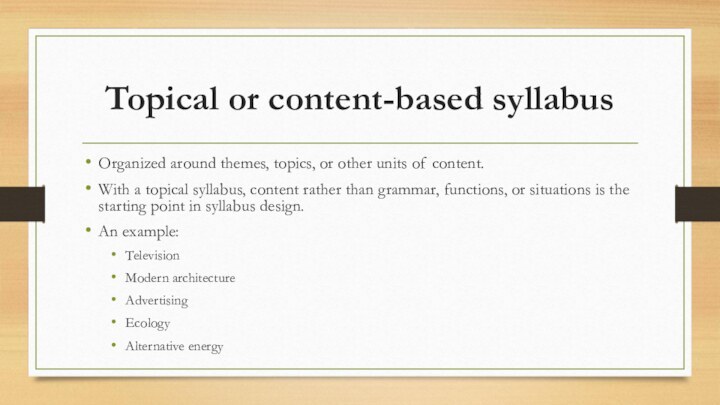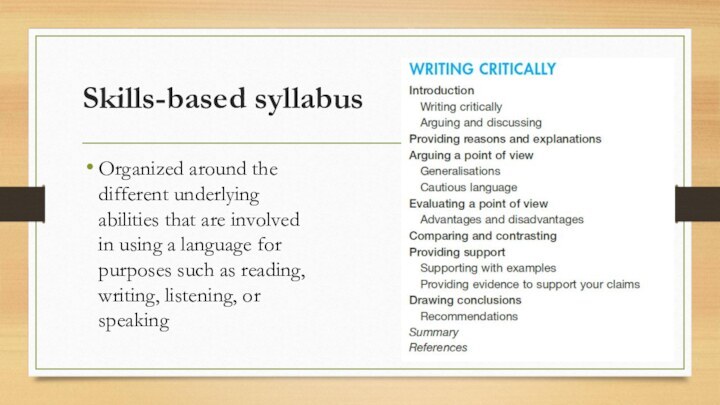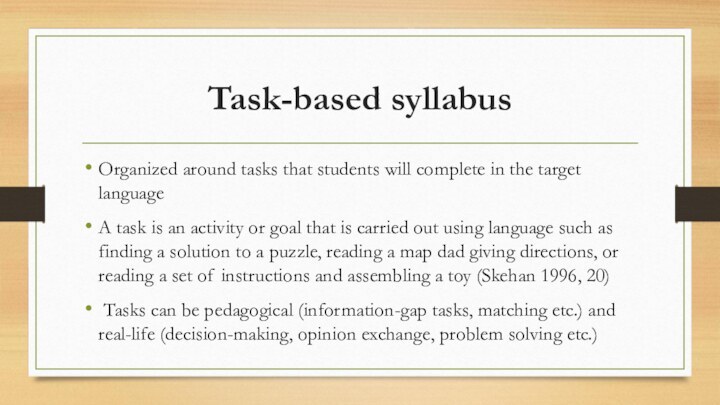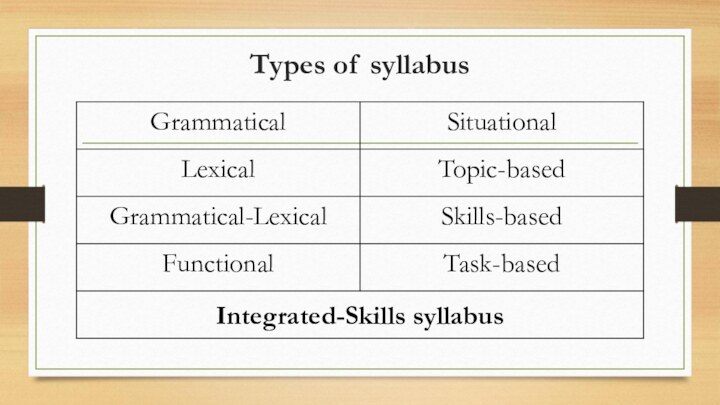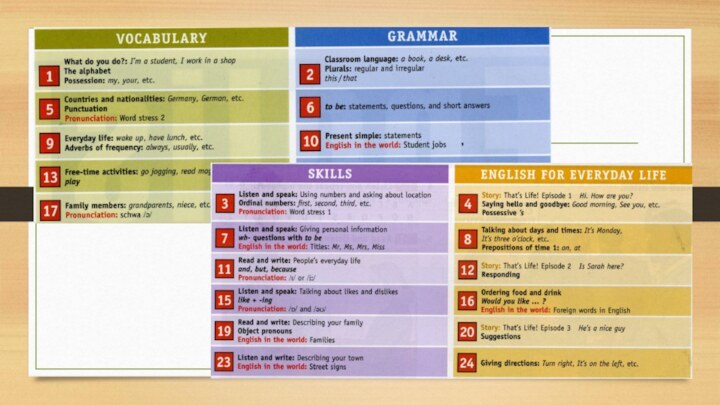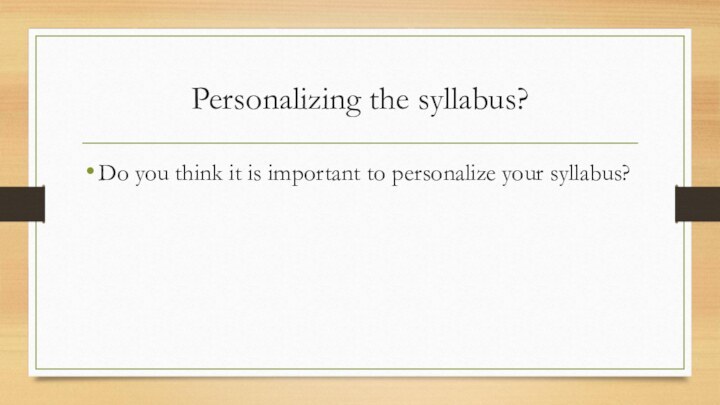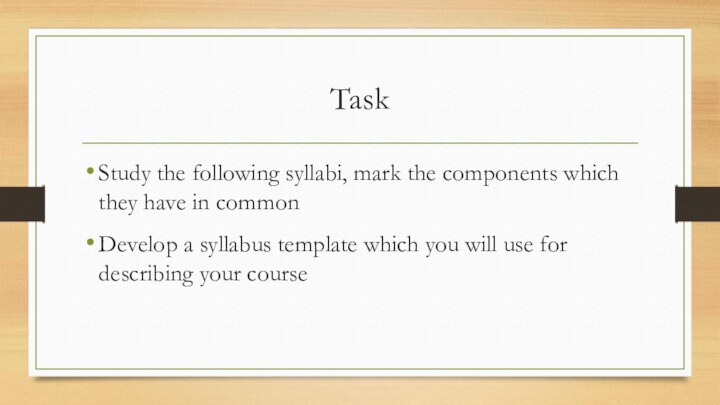Слайд 2
Probing questions:
Have you ever designed a course for
English language learners?
What did you have to take
into consideration, when you designed your course?
What were your resources and challenges?
Слайд 3
What is a language course?
A course is “an
integrated series of teaching-learning experiences, whose ultimate aim is
to lead the learners to a particular state of knowledge”
(Hutchinson and Waters 1996: 65)
General English course, Survival English course, English for Doctors, English for Aviation, English for Academic Purposes (EAP)
Слайд 5
Articulating beliefs
What is a language?
Rule-governed vs meaning-governed
What does
it mean to be proficient in the language?
How
can you motivate students to be better learners of the language?
Relating teaching to life experiences; consider SSs learning styles
How can your teaching style affect your learners?
Слайд 8
Products of course design
A course rationale
A list of
goals and objectives
A list of competencies achieved by the
students
A needs assessment questionnaire
A test bank
A syllabus
Слайд 9
Task for this course
Choose a course as the
basis for your work. It can be:
a course you
have taught and want to redesign
a course you are planning to teach
a course in which you are or have been a learner
Follow the process of course design to develop a syllabus for your course. Present your syllabus in class at the end of the semester.
Слайд 10
Characteristics of a syllabus
Describes the major elements that
will be used in a language course and provides
the basis for its instructional focus and content
Consists of a comprehensive list of items to be taught in the course - content items (words, structures, topics) and process items (tasks, methods)
Includes explicit objectives, time schedules, methodology or approach, recommended reading materials etc…
Слайд 12
Grammatical syllabus
Organized around grammatical items
Grammar-translation method
Advantages/disadvantages?
Слайд 13
Lexical syllabus
Identifies target vocabulary to be taught according
to levels:
Elementary level: 1.000 words
Intermediate level: an additional 2,000
words
Upper Intermediate level: an additional 2,000 words
Advanced level: an additional 2,000+ words
Слайд 14
Functional syllabus
Main assumption: mastery of individual functions results
in overall communicative ability
Things that learners can do with
the language:
Suggesting, promising, apologizing, greeting, inviting, requesting, complaining, suggesting, agreeing etc.
Слайд 15
Situational syllabus
Organized around the language needed for different
situations
Advantages/disadvantages?
Слайд 16
Topical or content-based syllabus
Organized around themes, topics, or
other units of content.
With a topical syllabus, content
rather than grammar, functions, or situations is the starting point in syllabus design.
An example:
Television
Modern architecture
Advertising
Ecology
Alternative energy
Слайд 17
Skills-based syllabus
Organized around the different underlying abilities that
are involved in using a language for purposes such
as reading, writing, listening, or speaking
Слайд 18
Task-based syllabus
Organized around tasks that students will complete
in the target language
A task is an activity or
goal that is carried out using language such as finding a solution to a puzzle, reading a map dad giving directions, or reading a set of instructions and assembling a toy (Skehan 1996, 20)
Tasks can be pedagogical (information-gap tasks, matching etc.) and real-life (decision-making, opinion exchange, problem solving etc.)
Слайд 21
Personalizing the syllabus?
Do you think it is important
to personalize your syllabus?
